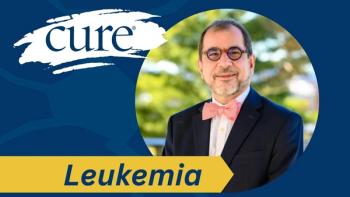
Dr. Ashkan Emadi outlines eligibility, referral and care logistics for a first-in-world subcutaneous Blincyto trial at WVU Cancer Institute.

Dr. Ashkan Emadi outlines eligibility, referral and care logistics for a first-in-world subcutaneous Blincyto trial at WVU Cancer Institute.
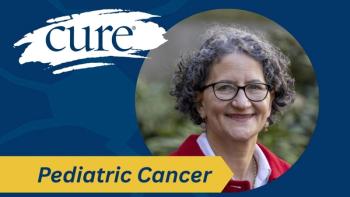
A new study suggests that a proactive, tech-driven approach to palliative care can significantly improve the lives of children with advanced cancer.

A patient with cancer reflects on participating in a clinical study and how community and creativity helped ease chemo brain symptoms.

FDA accepted a new drug application for tirabrutinib in relapsed or refractory PCNSL.

The FDA approved a once-monthly Rybrevant Faspro schedule with Lazcluze for first-line EGFR-mutated advanced NSCLC, reducing visits.

FDA approves Filkri, a biosimilar that helps reduce infection risk and speed white blood cell recovery during chemotherapy and other treatments.

Rising cancer rates in young adults highlight the need for employer support, flexible work and whole-person health programs to improve outcomes.

Braftovi plus Erbitux and FOLFIRI improved progression-free survival in untreated BRAF V600E metastatic colorectal cancer in the phase 3 BREAKWATER trial.
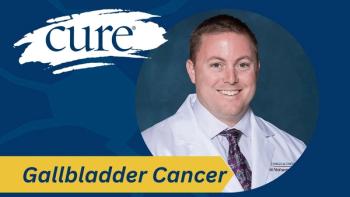
Dr. McKenzie discusses gallbladder cancer risk factors, imaging signs and how surgery and lymph node evaluation impact outcomes.

The FDA is reviewing iberdomide for relapsed or refractory multiple myeloma, with a decision date set for August.

Patients with stage 4 lung cancer and EGFR mutations may benefit from combination therapies that improve disease control.

Five years ago, I finished treatment and was determined to be no evidence of disease. Until my most recent CT scan, there’s been no sign of recurrence.

Black patients were underrepresented in ovarian cancer trials and had lower overall survival than White patients in a pooled analysis of 1,903 participants.

Retevmo improved event-free survival in stage 2 to 3A RET fusion-positive non-small cell lung cancer after curative therapy, per phase 3 data.

A PSMA PET scan found more recurrent prostate cancer at low PSA levels than a standard scan, helping guide more potentially curative treatment decisions.

A comprehensive guide for newly diagnosed patients with follicular thyroid cancer.
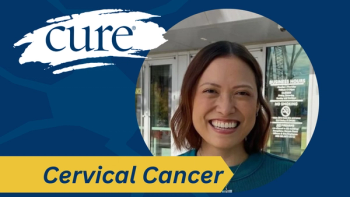
A three-time survivor shares why persistent symptoms, second opinions and mental health support matter after cervical cancer.

Overview of diagnosis, stage-based treatments, side effects and follow-up to help patients with cancer understand care choices and expectations.

Learn diagnosis, treatments, side effects and key questions to help guide shared decisions with your oncology team after stage 4 ccRCC diagnosis.

Charles Walker discusses living liver donation, survivorship challenges and why self-advocacy and awareness are vital for patients with liver cancer

A three-time survivor stresses second opinions, therapy and caregiver self-care to help patients navigate treatment, recovery and life after surgery.

My intent in writing this blog is to make sure that other people whose loved ones have cancer understand just how amazing it is to be given short respites from being a patient.
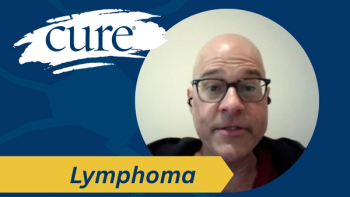
Six-time cancer survivor encourages patients to trust doctors, lean on support, and save energy for moving forward instead of fear.

The U.S. FDA has granted orphan drug designation to HCB101, an investigational immunotherapy, for the treatment of gastric cancer.
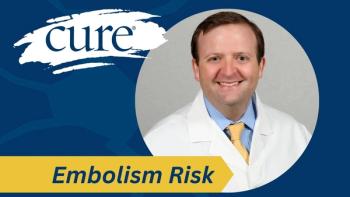
There are a number of pulmonary embolism warning signs patients with cancer and their caregivers should watch for.

Phase 2 study shows proton therapy kept 79.1% of patients progression free at five years and limited severe side effects compared with older radiation data.

Exploring the importance of heart health in cancer survivorship, we spoke with experts and survivors.

Heather Quintana Suchan says early biomarker testing at diagnosis helped match her to Rybrevant and urges patients to personalize care and stay active during treatment.

A liver cancer survivor shares transplant insights, dispels living donor myths and urges patients to advocate for informed, hopeful care.

Heather Quintana Suchan, a nonsmoker with stage 4 lung cancer, credits genomic testing and Rybrevant and urges others not to ignore mild symptoms.